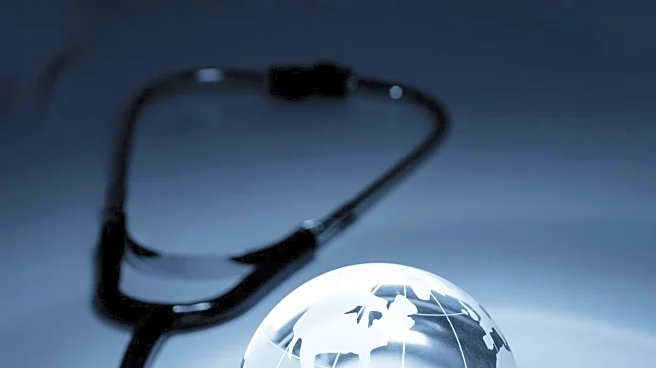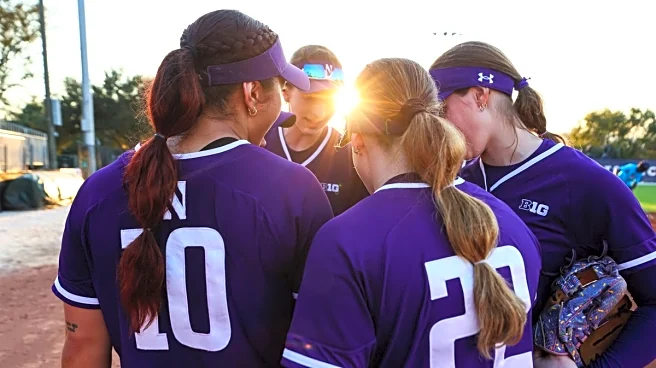What's Happening?
The World Health Organization (WHO) has released new guidance to assist poorer nations facing severe cuts in global healthcare funding. The UN health agency projects a decline of 30-40% in healthcare aid
compared to 2023, affecting essential medical services worldwide. This reduction has led to significant cuts in key health services in low and middle-income countries, with job losses among health workers exacerbating the situation. WHO emphasizes the need for countries to transition from aid dependency to sustainable self-reliance, using domestic resources to protect vulnerable populations.
Why It's Important?
The funding cuts threaten critical healthcare services such as maternal care, vaccination, and disease surveillance, potentially reversing hard-won health gains. The situation highlights the vulnerability of healthcare systems in poorer nations and the importance of sustainable funding models. Countries like Nigeria and Ghana are taking steps to increase domestic healthcare funding, demonstrating the potential for national leadership and global solidarity in sustaining health systems.
What's Next?
Countries are encouraged to implement strategies for self-sufficiency in healthcare funding, reducing reliance on external aid. WHO's guidance may lead to policy changes and increased investment in domestic healthcare infrastructure. The situation calls for international cooperation to support these efforts and ensure equitable access to healthcare services.
Beyond the Headlines
The funding cuts underscore the broader challenges of global health equity and the need for resilient healthcare systems. The situation may prompt discussions on the ethical implications of aid dependency and the role of international organizations in supporting sustainable development.










